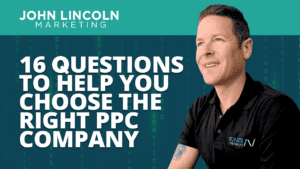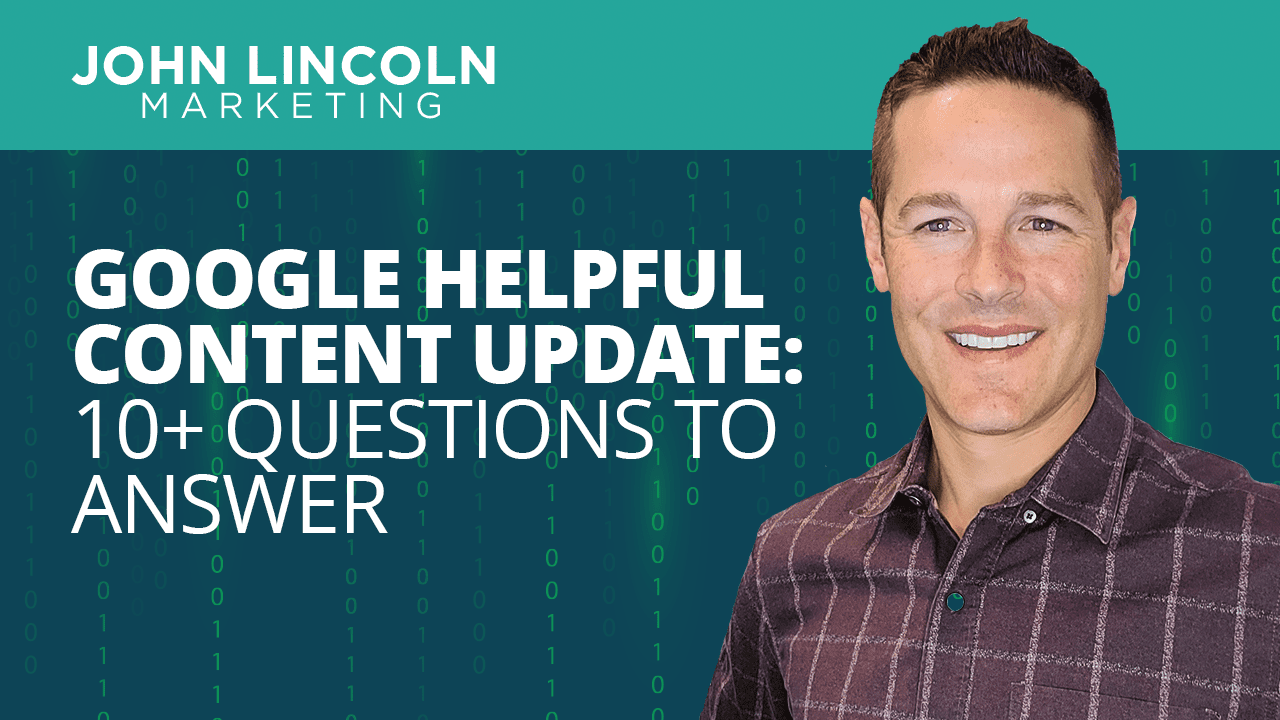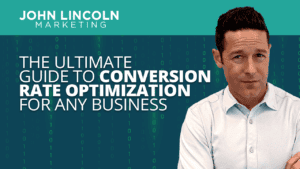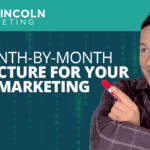
Top 16 Questions to Ask a PPC Company in 2024
In 2024, choosing the right PPC company is not just about spending your advertising budget. You want to make every cent count towards your business

Well, Google does. That’s why the company recently rolled out the recent helpful content update.
In this guide, I’ll explain it and list 12 questions you should ask yourself about your content marketing.
Google’s helpful content update happened in two phases.
The first phase occurred in August of 2022. The second phase started in December of 2022 and completed in January of 2023.
The point of both phases:
Those two points are really birds of a feather.
Sometimes, website owners will produce content that’s designed to “rank well.” It’s not meant to offer anything of value to readers.
One of the ways they do that is by purchasing backlinks. But Google sees through that.
Also, there are quite a few systems that auto-generate articles and blog posts—the latest and most popular example being ChatGPT.
Although a lot of that AI-generated stuff reads well, it’s not what Google is looking for.
Google wants to rank well-researched content that’s written by experts in their fields.
Now that you know a little more about the Helpful Content Update, let’s go over some questions you should ask yourself going forward.
First, I’ll start with questions that Google wants you to ask.
In other words, is the content you’re producing meant to actually help people in your target market? Or is it content that’s designed to rank well for a specific keyword and not much else?
If the answer to the first question is “yes” and the answer to the second question is “no,” then you’re in good shape.
People are visiting your site and reading your articles because they want answers.
The Google Helpful Content Update wants to know: Are you providing those answers?
Moreover, are you explaining and justifying your answers so that people who read your content are persuaded that you know what you’re talking about?
Some sites, like BuzzFeed, can get away with covering a variety of subjects.
But if you want to succeed in today’s competitive online marketplace, you should create a website that covers a single, very specific subject.
If people read your content and return to Google to look for other articles on the same subject, then they probably didn’t get what they needed from your website.
You need to change that.
Make sure you use hyperlinks to justify the claims you make with authoritative sources. Include examples from your own personal experience that validate your conclusions.
In other words, make your content a one-stop shop for the subject you’re covering.
Follow that old saying from the news industry—give the people what they want.
The only constant is change.
Google is always updating its guidance. Make sure you keep up.
Sometimes, you’ll need to go back and update the content you already produced because it doesn’t follow current guidelines.
Now that I’ve covered a few questions that Google wants you to ask yourself, I’ll go over a few questions I’d like you to ask yourself as well.
Ask yourself: “What kind of information are people in my target market looking for?”
List several answers to that question. Produce content accordingly.
If you’re doing that, you’re producing search engine-oriented content. You’re not producing content for people.
Marketing automation enables you to let algorithms do all the grunt work while you focus on building your business.
But, as is the case with anything else, you can take automation too far.
And Google’s Helpful Content Update insists you’re taking it too far if you’re letting software write content for you.
If so, you’re probably just ripping content from other sources. Don’t expect a great rank.
First of all, Google doesn’t have a preferred word count. Full stop.
Secondly, if you’re taking 1,000 words to answer a question when you could do so with just 100, you’re wasting your reader’s time.
If you did that, you’re working backward.
Instead, do the market research up front and write content that answers questions people in the market might ask.
Bottom line: focus on meeting the needs of humans, not just optimizing for search engines.
And, unsurprisingly, you’ll find that you rank well when you do that.
Welcome to John Lincoln’s personal website. You can learn about John Lincoln’s books, films, book him to speak and contact him. John is directly associated with many of the businesses mentioned on this website and freely discloses this information.

John Lincoln is CEO of Ignite Visibility, one of the top digital marketing agencies in the nation. Ignite Visibility is a 6x Inc. 5,000 company. Ignite Visibility offers a unique digital marketing program tied directly to ROI with a focus on using SEO, social media, paid media, CRO, email and PR to achieve results. Outside of Ignite Visibility, Lincoln is a frequent speaker and author of the books Advolution, Digital Influencer and The Forecaster Method. Lincoln is consistently named one of the top digital marketers in the industry and was the recipient of the coveted Search Engine Land “Search Marketer of The Year” award. Lincoln has taught digital marketing and Web Analytics at the University of California San Diego since 2010, has been named as one of San Diego’s most admired CEO’s and a top business leader under 40. Lincoln has also made “SEO: The Movie” and “Social Media Marketing: The Movie.” His business mission is to help others through digital marketing.
Want to get in touch with John Lincoln? Click Here To Reach Out.

In 2024, choosing the right PPC company is not just about spending your advertising budget. You want to make every cent count towards your business

Whether you’re a seasoned marketer or just starting out, conversion rate optimization (CRO) is a powerful tool that can boost your sales, leads, and overall

Feeling overwhelmed by the sea of SEO companies out there? You’re not alone! Choosing the right partner is crucial for achieving your online marketing
 A Month-by-Month Structure for Your CRM Marketing
A Month-by-Month Structure for Your CRM Marketing We’re in the privacy era of the Information Age. As a result, you’ll need to rely on CRM marketing. Several years